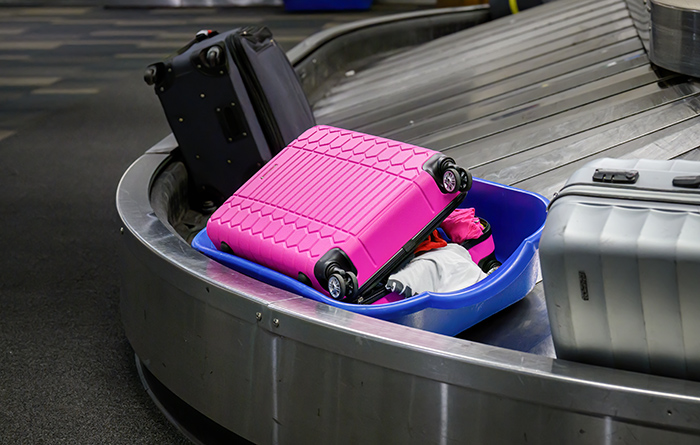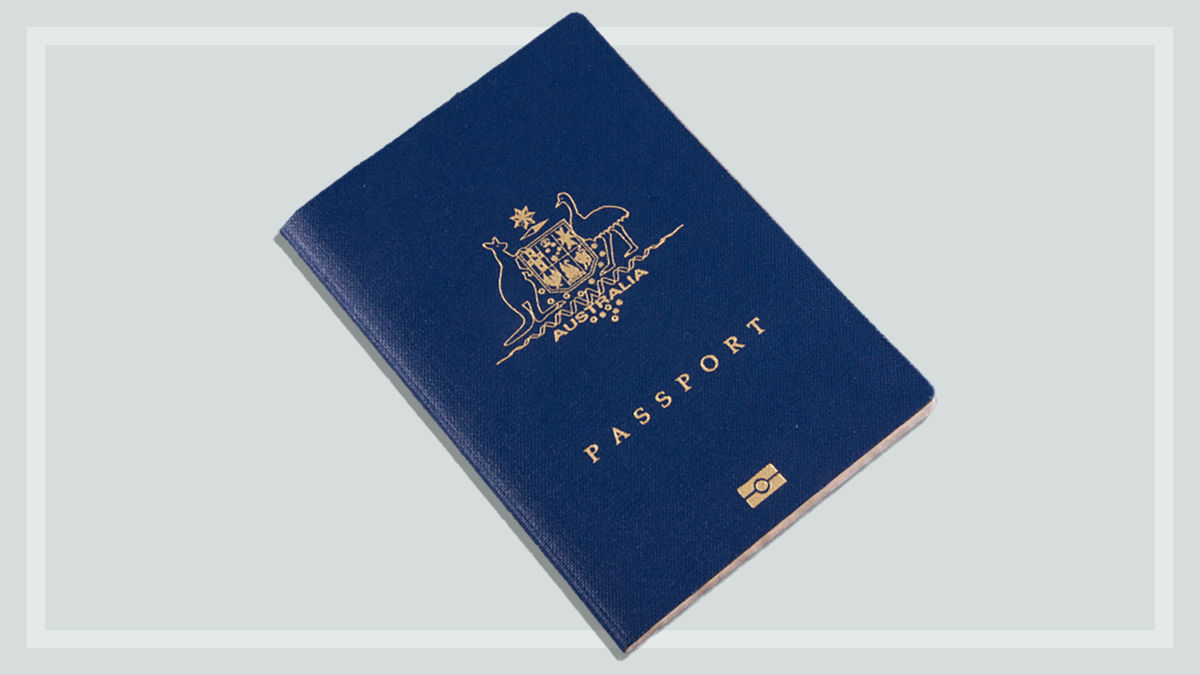Get our independent lab tests, expert reviews and honest advice.
5 things that can ruin your summer holiday and how to avoid them

Holidays are meant to be relaxing, right? A chance to escape the everyday pressures of life and enjoy a hassle-free break from the daily grind.
On this page:
- 1. Getting insurance wrong
- 2. Travelling with the wrong bag
- 3. Not knowing your flight rights
- 4. Failing to prepare for your road trip
- 5. Getting the tech wrong
While that’s certainly the ideal, it isn’t hard to find examples of holidays that are anything but the relaxing getaway planned.
There are no shortage of problems that can turn a dreamy escape into a hellish ordeal
Whether it’s damaged luggage, travel insurance problems, road trip ordeals or flight cancellations, there are no shortage of problems that can turn a dreamy escape into a hellish ordeal.
While you can’t plan for every eventuality, our expert advice can help you avoid some of the most common causes of travel stress.
1. Getting insurance wrong
If you’re heading overseas, travel insurance is almost as essential as a passport.
While unforeseen medical expenses are the number one reason to get insurance, it can also help if other things go wrong, such as trip cancellations, delays, lost luggage or even natural disasters.
As is often the case with insurance, the different inclusions, exclusions and conditions of each policy can make it difficult to choose the best option for you.
If you’re sick but it’s due to an existing medical condition that your policy doesn’t cover, the cost could run into hundreds of thousands in medical bills
Jodi Bird, CHOICE travel insurance expert
“If you hire a moped in Thailand but your travel insurance doesn’t cover mopeds, it could cost you tens of thousands in medical bills if you have an accident,” says CHOICE travel insurance expert Jodi Bird.
“If you’re sick on a cruise to Japan, but it’s due to an existing medical condition that your policy doesn’t cover, the cost could run into hundreds of thousands in medical bills.”
Before purchasing a policy you’ll need to consider things like pre-existing medical conditions, whether or not you’re travelling with valuable items and the kinds of activities you’ll be taking part in while you’re away.
Most people purchase travel insurance to cover them in case medical care is needed while overseas.
This is a no-brainer for destinations where Australians have no health care entitlements, but it’s worth being aware that even if the country you’re visiting has a reciprocal health care agreement with Australia you will still need insurance.
In these situations, you might only be covered for urgent care that can’t wait until you get home.
Travel insurance might also come in handy if you become very ill and need a medical escort to accompany you home to Australia.
Also, you may still have to pay fees for treatment and medication even when a reciprocal agreement exists. For example, in New Zealand reciprocal health care doesn’t cover you for care by a general practitioner or ambulance.
Common travel insurance exclusions
Insurance for domestic travel
If you’re already covered by Medicare, you won’t need to take out travel insurance to cover medical expenses when you’re travelling within Australia.
Still, there are a few reasons why you may want to consider travel insurance for domestic trips.
- If you’ve spent a lot on your holiday and want coverage in case you need to cancel.
- If you’re going to be taking valuables and you want coverage in case of theft, loss or damage.
- If you want coverage for collision damage excess when you’re hiring a car.
If you’ve splashed out on a fancy hotel and business class flights, domestic travel insurance may be worth it
Jodi Bird, CHOICE travel insurance expert
“You probably don’t need travel insurance for a quick driving holiday (with your own car) to a caravan park,” says Jodi.
“But if you’ve splashed out on a fancy hotel and business class flights, domestic travel insurance may be worth it.
“Or if you’re hiring a car, domestic travel insurance is often a cheap substitute for the insurance pushed by the rental car agency.”
Check your home insurance before you travel
Your bags are packed, travel insurance is sorted, and your itinerary has been planned in meticulous detail.
On the home front, the fridge has been emptied, you’ve stopped your mail and arranged for your neighbours to put your bins out.
All sorted, right? Maybe not.
If you’re heading away for more than a few weeks you should find out if your absence will affect your home and contents insurance coverage.
If it’s just a brief trip it’s unlikely to be an issue. However, your insurer might cut your cover if you leave your home unoccupied for more than 60 days without telling them.
Your insurer might cut your cover if you leave your home unoccupied for more than 60 days without telling them
Most insurers will also impose an additional excess on unoccupied homes and even if you have a house-sitter or Airbnb guests, you may still need to tell your insurer.
“Almost all home insurers require you to inform them if your home will be unoccupied, typically, for 60 or more days,” says CHOICE home insurance expert Daniel Graham.
“Insurers handle unoccupied homes in one of three ways. Most will impose an additional excess on events that occur while your home isn’t occupied.
“Some will make you pay an extra premium instead, or they might only cover you for a limited set of weather events, instead of the full range of insured events covered by the policy.”

2. Travelling with the wrong bag
If you’ve struggled through a holiday with an unwieldy bag that is simply too big or small, too heavy, or just doesn’t stand up to the rigours of travel, you’ll know how much difference the right bag can make to your enjoyment of a trip.
Luggage comes in a bewildering array of sizes, styles and materials. More confusing still is the range of prices you’ll find when you start comparing the options.
Some carry-on suitcases cost as much as $625, but price is not necessarily an indicator of performance
The carry-on suitcases in our most recent luggage test cost as little as $20 and as much as $625. Larger suitcases ranged in price from $55 up to $1200.
The good news is that, as we often find in our expert CHOICE testing, price is not necessarily an indicator of performance. We found recommended models at lower prices, and none of the bags in our most recent test earned less than 72%.
In our CHOICE labs, experts put dozens of pieces of luggage through some rigorous testing to separate the good from the bad.
Our luggage tests involve lifting and dropping bags onto a concrete floor 300 times, dropping a heavy, pointed cylinder onto the suitcase to see what damage occurs, seeing how they stand up to a 10-minute downpour in our custom-built shower rig and testing their stability to find out how easily they tip over.
We also assess how easy they are to use by taking them for a stroll through the CHOICE building and around the local streets and parks, so you can be confident our recommended models will serve you well on your travels.
Choosing a bag that rated well in our review, and reading our guide to buying the right suitcase before you hit the shops can help ensure you’ve got the right bag for your holiday.
3. Not knowing your flight rights
In December 2023 CHOICE research revealed that two out of five of the 9000 airline customers we surveyed had experienced a flight delay or cancellation in the previous year.
It’s a situation that can create huge stress and usually results in passengers being left to figure out for themselves exactly what their rights are in the face of complicated terms and conditions.
“Airlines have taken advantage of the lack of effective complaint avenues to leave customers out of pocket thousands of dollars for the flights they cancelled,” says senior policy and campaigns advisor Bea Sherwood.
“That’s why CHOICE has advocated for a proper ombudsman for over ten years, and now we’re finally getting one.”
CHOICE has advocated for a proper ombudsman for over ten years, and now we’re finally getting one
Bea Sherwood, CHOICE senior policy and campaigns advisor
In August 2024 the federal government committed to the establishment of a new charter of aviation rights for Australian travellers, including the introduction of an aviation industry ombudsman to help resolve disputes between airlines and their passengers. The scheme will come into effect in 2026.
In the meantime, understanding your rights should you be affected by a flight delay or cancellation will help you make your case with your airline. These will vary depending on where you are flying and which airline you’re travelling with.
Start by taking a look at the airline’s website where you will find comprehensive information about your entitlements to compensation and refunds in the case of delays, cancellations or overbooking.
Remember that regardless of what an airline says it will or won’t do in its terms and conditions, you have rights under the Competition and Consumer Act.
Regardless of what an airline says it will or won’t do in its terms and conditions, you have rights under the Competition and Consumer Act
If you’re unhappy, start by submitting a complaint in writing and be prepared to push. We often find that people get a better response if they are vocal about their issues on the airline’s Twitter (X), Facebook, Threads or Instagram accounts.
If you still don’t get a reasonable response, you may need to lodge a formal complaint through your state’s department of Consumer Affairs or Fair Trading.
Warning: Scammers have been impersonating Australian airlines on X (formerly known as Twitter), posing as customer service representatives in order to steal sensitive personal information.
Learn more: The fake customer service accounts targeting travellers.

4. Failing to prepare for your road trip
Ensuring your vehicle is in good working order is the first step to road trip success. Before any long drive you should top up fluids such as oil and coolant, check your wiper blades and fill your windscreen washer reservoir and make sure your tyres are in good condition.
But that’s by no means where your preparations should end.
Do you know your route? If you’re planning on using a mobile phone app to navigate, be aware that coverage can be spotty outside of populated areas so it’s a good idea to get familiar with your route before you leave.
Even better, a backup navigation system, whether that’s in-car navigation, a separate GPS device or an old-school paper map (provided it’s up to date) can come in handy.
If you’re travelling with kids on a long trip, boredom-busters are a must.
We asked the experts (aka, CHOICE parents) how they prepare for road-tripping with their families. Here are their top tips:
- Have a bag of toys/activities that you can hand out as needed to stave off boredom. Dispersing them gradually throughout the duration of the trip keeps things fresh.
- Have snacks on hand for distraction as much as nourishment.
- You don’t have to rely on tech to keep kids amused – drawing supplies, games of ‘spotto’ and the classic eye spy can be great ways to pass the time.
- When the non-tech distractions start to lose their appeal, audiobooks, children’s podcasts and music that both adults and kids enjoy can also help.
5. Getting the tech wrong
Along with sunscreen, a towel and a swimsuit, a week at the beach usually requires one or two paperbacks to enjoy while relaxing on the sand. Unfortunately, traditional books are bulky and heavy, taking up valuable luggage space.
The modern solution, an e-reader, allows you to load up hundreds of books. Some e-readers even let you borrow books from your public library.
While most e-readers hold charge for a decent length of time, they will all require charging at some point, as will any other tech you take with you. If you’re travelling overseas, find out what kind of adapter you’ll need to use the power points at your destination.
If you’re planning to spend a lot of time out and about, a power bank may be useful.
Our power bank tests show approximate charge time, approximate portable battery recharge time, size and weight and reveal the usual capacity of each power bank, which can be quite different from the stated capacity.






